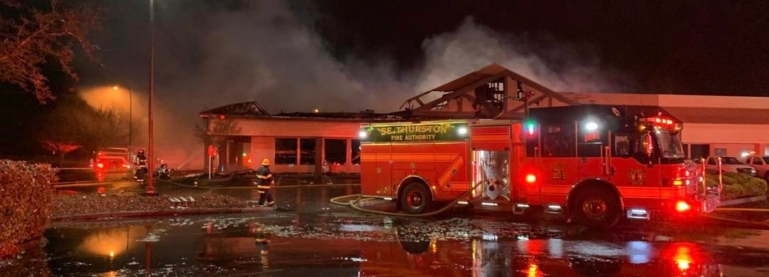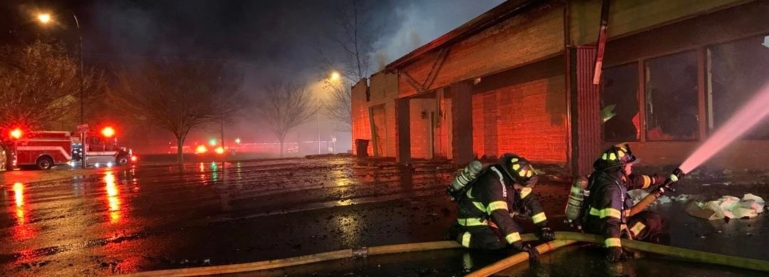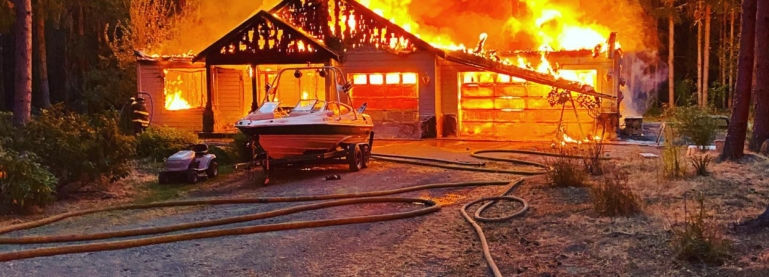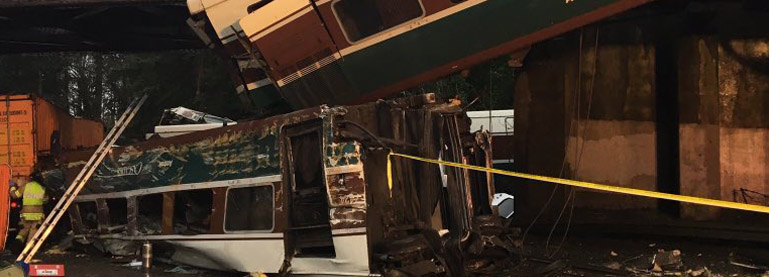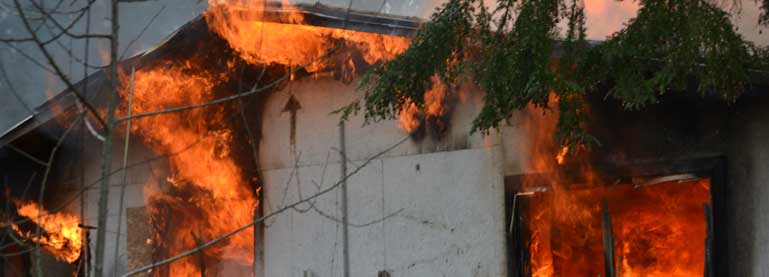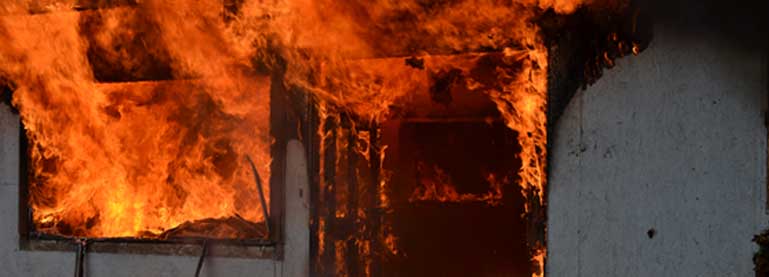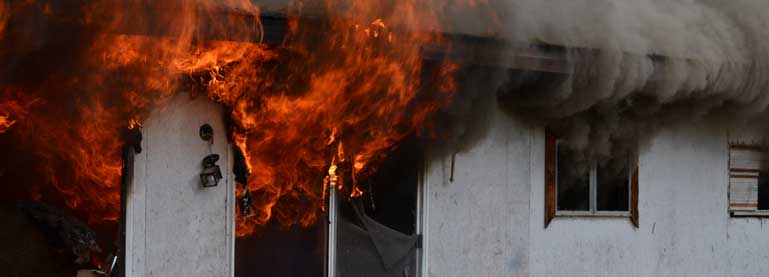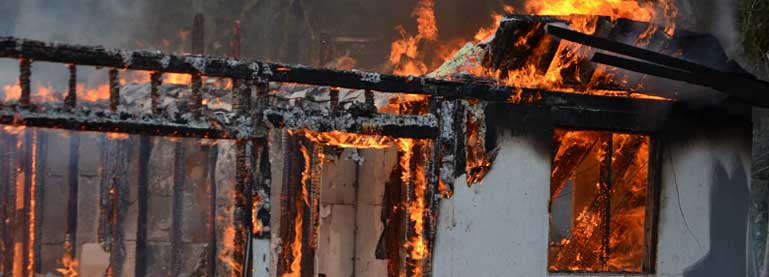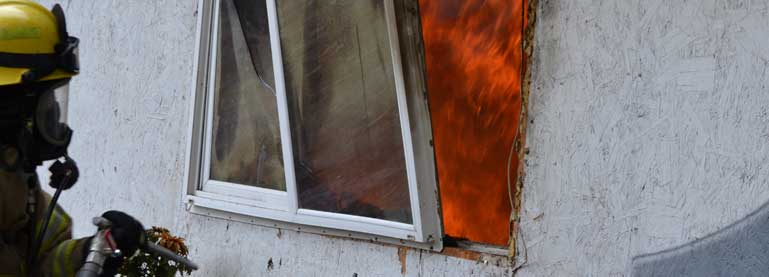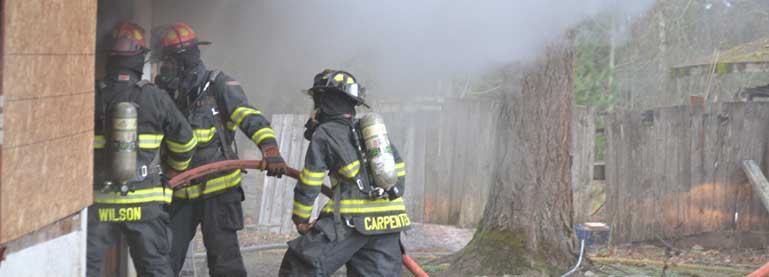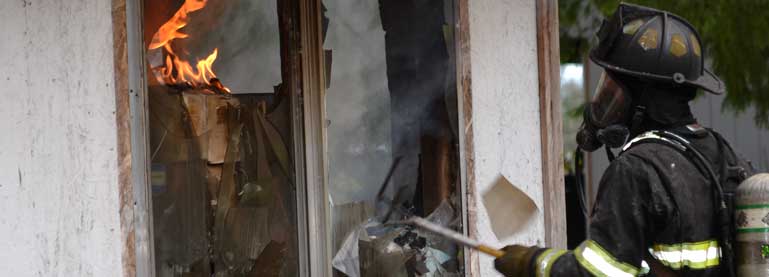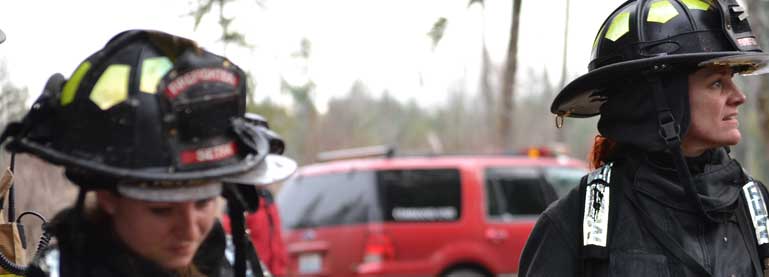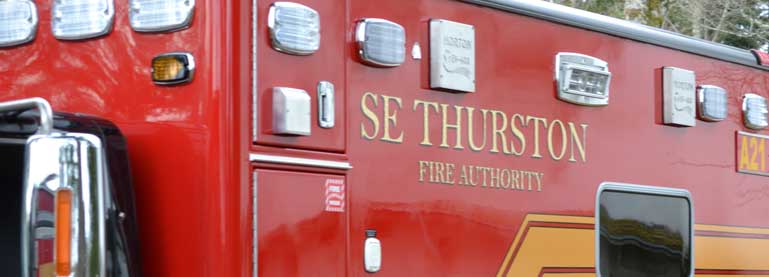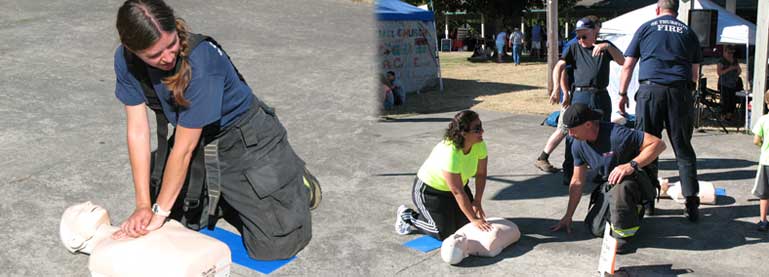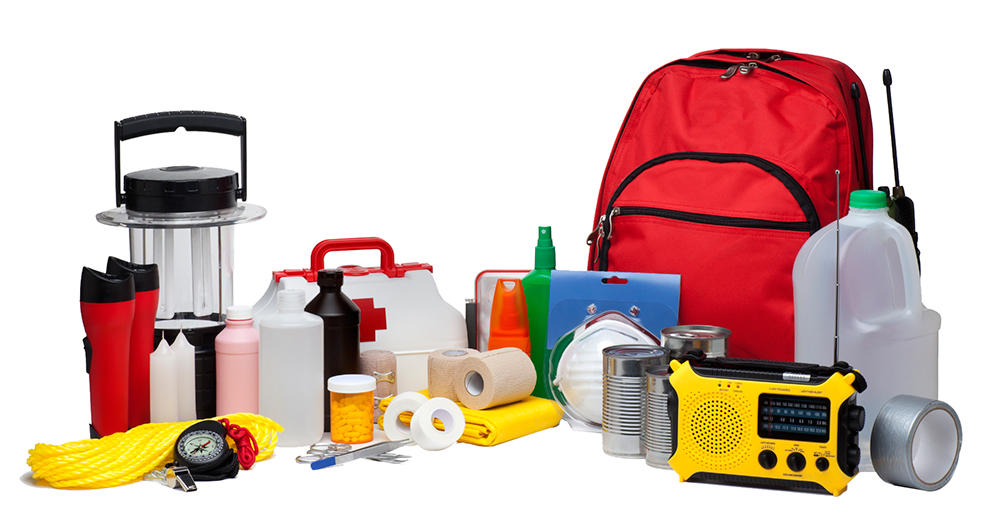
It’s always best to be prepared for the worse. Take a look at these tips below to help keep you and your loved ones prepared. It’s not a matter of “if,” it’s a matter of “when.” Don’t delay. Prepare now!
- Store at least a 3-day supply of non-perishable food and water (one gallon per person per day for drinking and sanitation) in a cool, dark, and accessible place. Put together portable “grab and go” disaster kits for your home, car, and workplace.
- Secure bookcases, entertainment centers, hutches, mirrors, water heaters and large appliances to the wall to prevent them from tipping over or breaking utility connections during an earthquake. Many hardware stores have simple kits just for this purpose.
- Teach each capable member of your household how to turn off gas, water, and electric utilities at the meter. Store any shut-off tools you’ll need at the meters. Consider having an automatic gas shut off device professionally installed.
- Put ABC-type fire extinguishers on each floor of your home and in each vehicle, and check them annually for charge levels.
- Put battery-operated smoke/carbon monoxide detectors on each floor of your home and in the garage; change batteries twice per year.
- Put S.A.M.E. (Specific Area Message Encoding) public alert monitors in your home and work place. To learn more about this system, browse to www.emd.wa.gov and click on the “Weather Radio in Washington” link.
- Identify safe locations within your home and workplace to seek cover in the event of an earthquake. If you have children in your home, hold earthquake drills every six months.
- Identify at least two escape routes from each room in the event of a fire. If you have children in your home, hold fire drills every six months.
- Designate two locations—one just outside of your home and one outside of your neighborhood—for household members to meet in the event you need to evacuate.
- Enroll each capable member of your household in a first aid/CPR class.
- Keep a wallet-sized emergency contact list with you at all times, including an out-of-state contact that can serve as a message center. During an emergency, local calls might not go through while out-of-state calls may. Pay phones are usually the first to work again.
- Ask your child’s school or day care provider, as well as your employer, to explain their disaster plans to you.
- If you have a relative, neighbor, or friend that can’t get prepared on their own, volunteer to spend a few hours to assist them. Find out who in your neighborhood might need special assistance during an emergency—specifically the elderly, disabled, or non-English speaking neighbors.
- Check with your veterinarian for animal care instructions in an emergency situation.
Flooding Preparedness
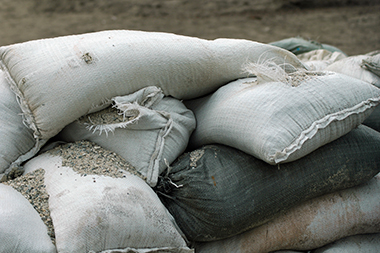 Floods are the most common and widespread of all natural disasters, and the source of many emergency calls responded to by S.E. Thurston Fire Authority staff and firefighters. Since 1972, Thurston County has been declared a federal disaster area for floods more than a dozen times. Flooding in the county comes from several sources: the Nisqually, Deschutes, Skookumchuck, Black and Chehalis rivers, and groundwater saturation. Thurston County Emergency Management offers extensive information and resources via its website. Being prepared and using common sense during a flood are the most important things to remember.
Floods are the most common and widespread of all natural disasters, and the source of many emergency calls responded to by S.E. Thurston Fire Authority staff and firefighters. Since 1972, Thurston County has been declared a federal disaster area for floods more than a dozen times. Flooding in the county comes from several sources: the Nisqually, Deschutes, Skookumchuck, Black and Chehalis rivers, and groundwater saturation. Thurston County Emergency Management offers extensive information and resources via its website. Being prepared and using common sense during a flood are the most important things to remember.
Click here for information about Nisqually Valley River flooding.
SETFA offers these guidelines when flooding occurs:
- Do not attempt to walk or drive through flooded areas. Water can be deeper than it appears, and water levels rise quickly.
- Stay away from moving water.
- Avoid disaster areas unless authorities ask for volunteers.
- Stay away from downed power lines. Do not call SETFA to report a downed power line unless it is actively sparking or setting nearby trees or structures on fire. Call PSE at 1-888-225-5773.
- If local authorities issue a flood watch, be prepared to evacuate.
- If your home is flooded, turn the utilities off until emergency officials tell you it is safe to turn them on.
- Avoid weakened floors, walls and roofs.
- Consider health and safety needs. Flood waters may be contaminated by oil, gasoline or raw sewage. Wash your hands frequently with soap and clean water if you come in contact with flood waters.
- When deep flooding is likely, permit the flood waters to flow freely into your basement to avoid structural damage to the foundation and the house.
- Listen to the radio for information about where to get assistance.
- Throw away food that has come in contact with flood waters.
- Call your insurance agent.
- Take photos or a videotape of your belongings and your home.
Earth Quake Preparedness

Olympian Hotel, downtown Olympia: (Photo: © Robert J. Reid);
Road failure at Sunset Lake, Tumwater: (Photo: Steven Kramer, University of Washington).
http://www.dnr.wa.gov/researchscience/topics/geologichazardsmapping/pages/nisqually_pics.aspx
One of the most frightening and destructive phenomena of nature is a severe earthquake and its terrible aftereffects. An earthquake is the sudden, rapid shaking of the earth, caused by the breaking and shifting of subterranean rock as it releases strain that has accumulated over a long time. Visit this link http://www.ready.gov/earthquakes to prepare.
Wind Storm Preparedness
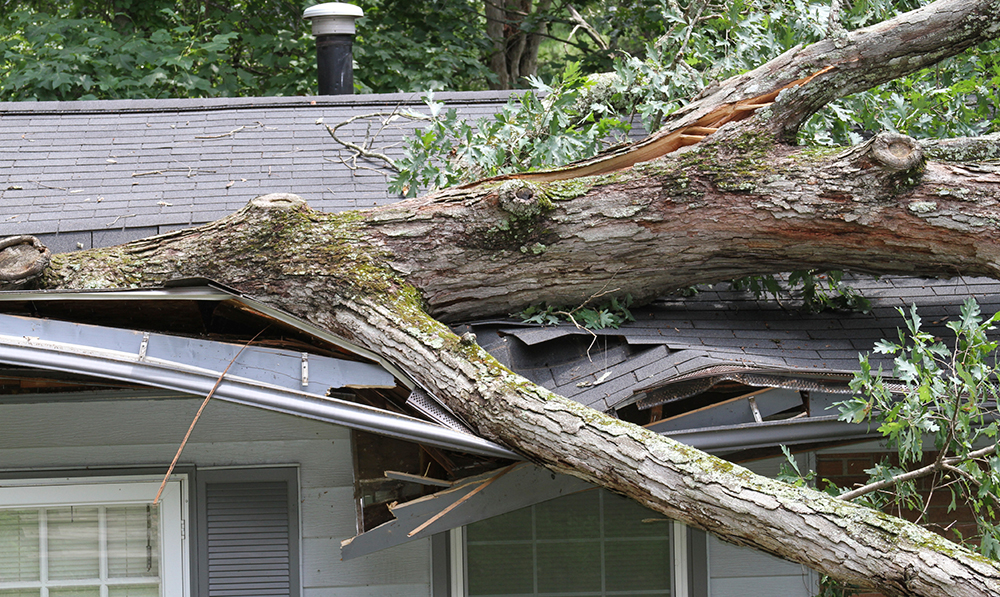
Follow these safety tips during wind storms.
- Stay away from downed power lines. Do not call SETFA to report a downed power line, unless it is sparking or spreading fire to nearby structures or trees. This clogs the 9-1-1 system and our staff is not able to fix or repair power lines.
- If loss of power is a possibility, turn off computers and unplug equipment that might be damaged by power surges.
- In the case of a power outage, use extra blankets to stay warm, and make sure you are in a well-ventilated area if using an alternative heat source.
- Do not run a generator indoors or use a BBQ or outdoor cooking source for indoor heat. This could result in carbon monoxide poisoning – and even death.
- Listen to the radio for updates and instructions.
- Stay inside, away from windows, skylights and glass doors.
- If injuries occur, give first aid where appropriate, but do not move a seriously injured person unless he/she is in danger. Immediately call 9-1-1 for help.
- Use the telephone for emergencies only.
- Be watchful of trees. Ground movement or heavy leaning of trees should warn you to evacuate any structure at risk.

